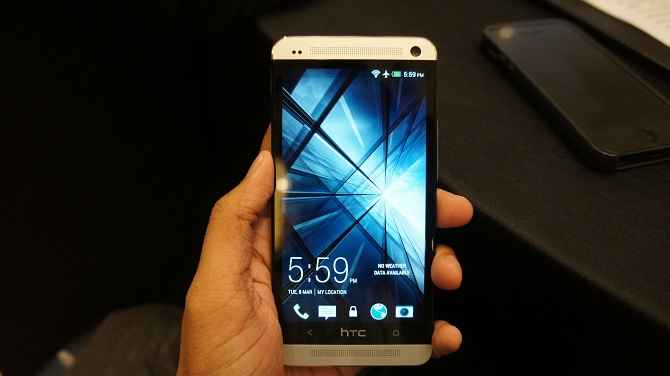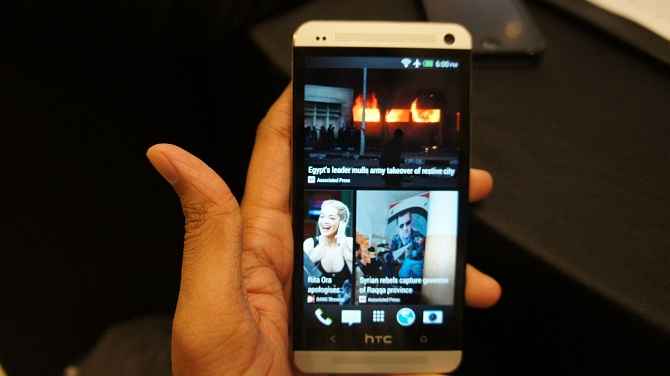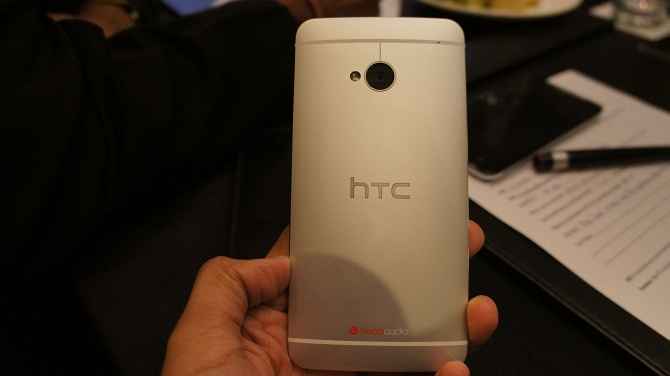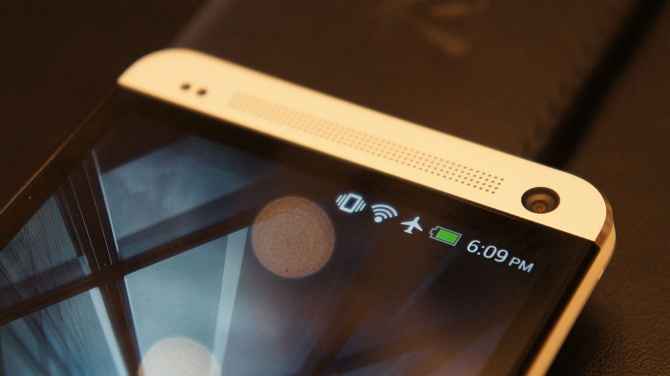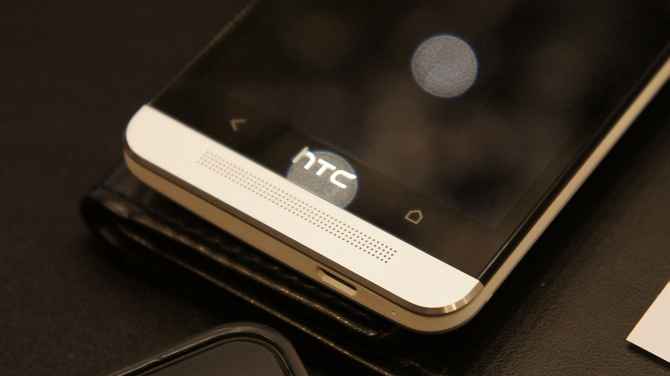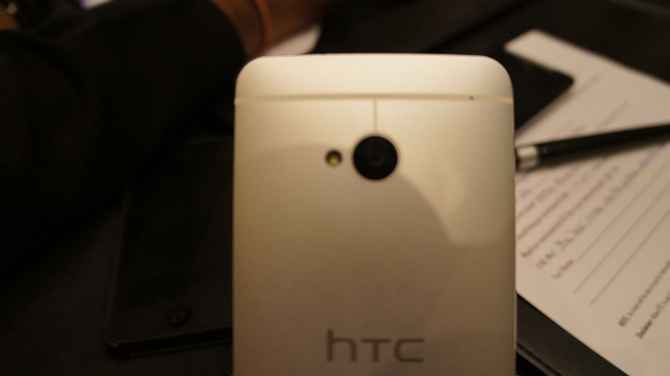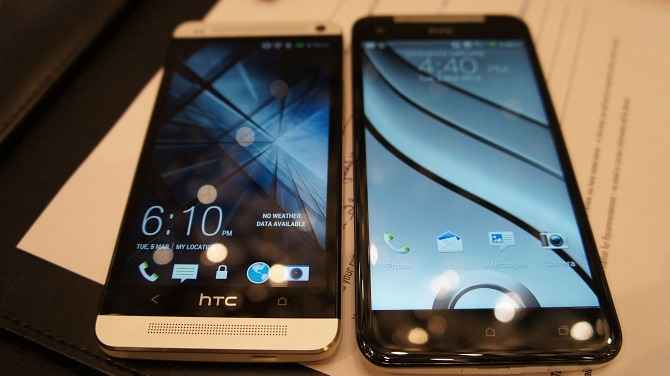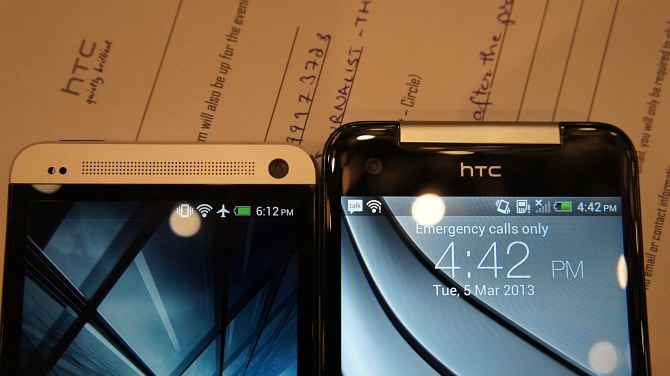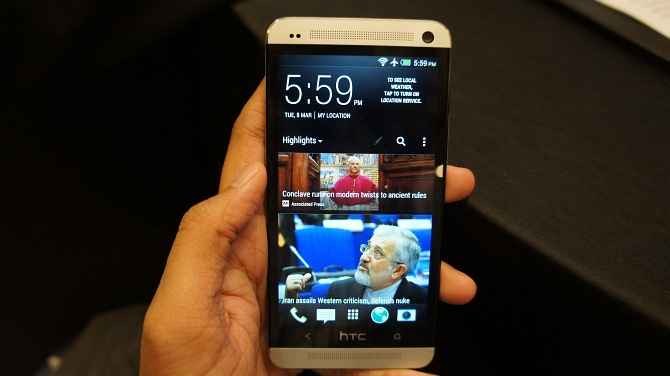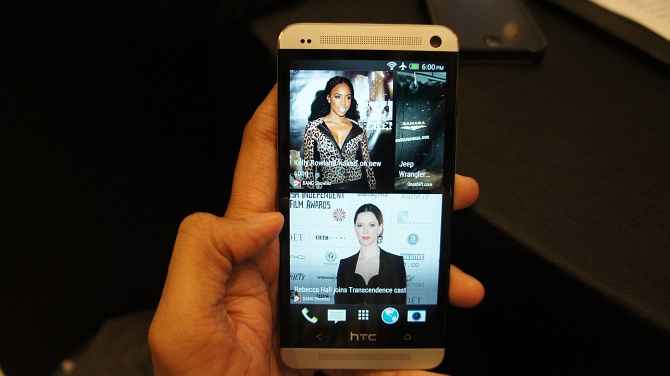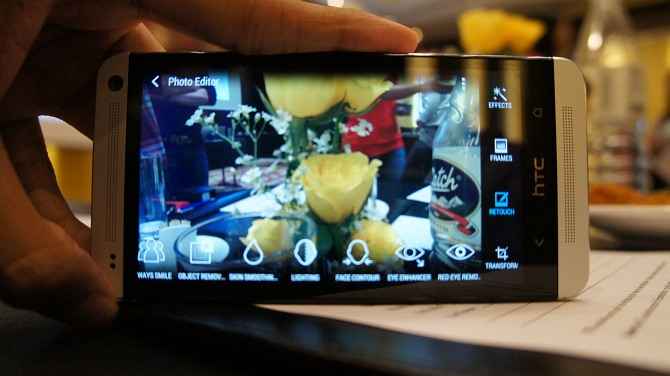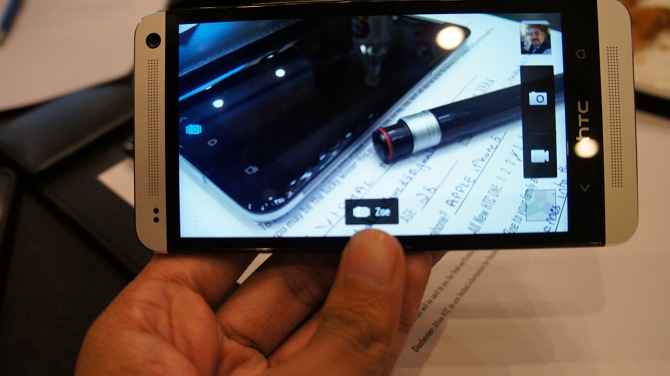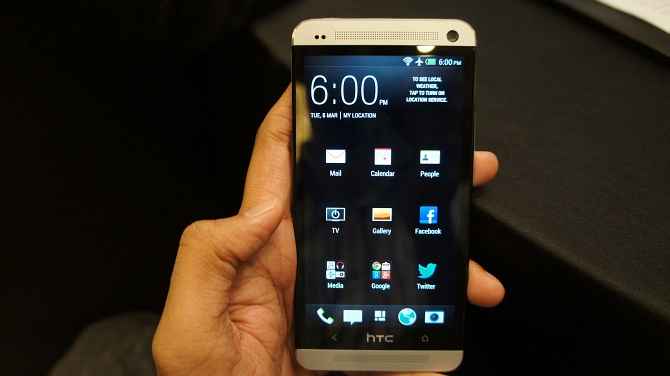HTC One: First Impressions
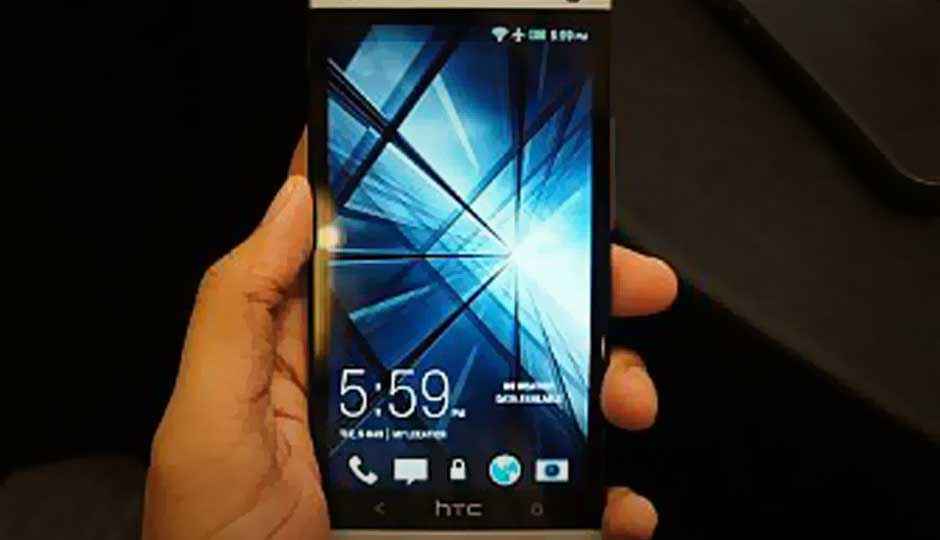
HTC showed off its new One smartphone to select journalists, and we were among the lucky ones to be invited. We used the device for a while, and here are our observations about the next flagship smartphone from HTC.
We were a tad surprised when our phone rang, and the good people from HTC on the other side of the line, said they wanted us to experience the HTC One. This seemed a little too early for the phone to be launched in India. What this was, it turns out, was a chance for select journalists to get to experience the HTC One, and to hear directly from the top bosses based otherwise in Taiwan, about the mindset and the design philosophy behind the phone.
After having had the chance to use the HTC One for a while, till it was weaned away from our almost death-grip (not strong enough apparently, because the phone is not with us anymore), we came up with some observations about the device. And we decided to share them with you.
– The build and design of the HTC One is absolutely fabulous. This is an all metal chassis, and the plastic parts have been done away with. Design lines along the front and the back give it a distinct visual appeal, and nicely hides away any fear that will be a boring unibody design.
– Absolutely no rough edges anywhere on the HTC One’s chassis, and side by side with the iPhone, this is as good as the phone from Apple, if not better. And that is a huge compliment.
– While the HTC One’s spines themselves are flat, the curve on the back means the phone sits comfortably in the hand and there really is no risk of it sliding around as you type out an SMS.
– The HTC One’s earpiece grille is beautifully chiseled out on the metal panel. To keep the similarity below the display as well, the microphone also sits in a similarly chiseled out pattern design. The sides host the volume rocker, while the power key is on the top, slightly on the left as you look at the phone’s screen. The power key has an IR transmitter, but we are not sure if the India bound version will get that.
– We had loved the 1080p HD display on the HTC Butterfly, and the 4.7-inch display on the One is even better than that. More pixel density – actually, the highest among all smartphones at the moment @ 468ppi – means it is even crisper, with text being fairly sharp.
– HTC is fairly confident that the HTC One’s custom developed imaging sensor and the bigger pixels – UltraPixels – that can absorb three times more light than a typical 8MP camera, is miles ahead than the competition. Yes, at 4MP, it does read rather dated, but from the images that were demo-ed, the performance seemed impressive. And that included low light performance. We will reserve our judgment on the performance of the camera till we test it in detail, and compare it to some of the good smartphone cameras available in the stores.
– The camera features are fairly detailed. The HTC One has Optical Image Stabilization, working with the gyroscope. This is a similar feature to the Lumia 920. Videos have the option of on-the-fly HDR, and the front-facing camera is a wide-shot one.
– HTC Zoe camera setting option is very interesting. The drive for the “perfect shot” is the motive behind this feature. It captures five frames before you press the shutter, another 15 after that – indicated by the red slider as it moves forward on the trigger. The phone also records a 3 second clip at the same time.
– The built-in photo editing features on the HTC One are very detailed. Unlike the Lumia 920 where the clunky UI begs the need for separate apps to do this task, the editing features are available on tap for each picture within the photo gallery.
– The HTC One’s BlinkFeed UI is an evolution of the widgets, by adding social networks, news and customized feeds into one UI. If you need to open a link to read an article, that opens within the BlinkFeed app, rather than opening a separate app. You can post Facebook status updates from here, and also like and comment on your friends’ updates. Speaking of close social networking integration, you can also upload pictures to Facebook from within the Gallery, and also see and comment on friends’ photos from there. All this comes with the HTC Sense 5 user Interface, first introduced on the HTC One. Apparently, the new version will also make its way to the HTC One X and some of the slightly recent launches in the One series of smartphones.
– HTC is also touting the BoomSound as the next big step in making the phone your entertainment hub. There are dual speakers on the front of the HTC One, along with the Beats Audio option and dual-mic HD recording.
HTC says that the One is “currently in production” and will arrive in India in April 2013. No price has been mentioned for the One, but we expect it to come with a price tag of around Rs. 49,000. The HTC One is powered by a quad-core Qualcomm Snapdragon 600 processor clocking at 1.7GHz and has 2GB of RAM. HTC says there will be two storage versions – 32GB and 64GB, and the 2300mAh battery will provide the juice!
Do check out some photographs of the HTC One in all its glory, below, while we wait impatiently to get it for testing. Do stay tuned for our comprehensive review.
This is the HTC One. The latest flagship phone from the company. Expected to arrive in India in April 2013.
The HTC One, with the 4.7-inch display, is very comfortable to hold.
The slight curve at the back is the other main reason. Unibody design is appreciated.
The exquisitely carved out earpiece grille on the aluminum body, with the front facing wide-shot camera.
A similar design for the mic, which lies below the display. Within this and the grille above are the front facing dual speakers.
That is the 4MP camera, Yes- you read it right. But the technology behind this is different.
This is how the HTC One compares to the HTC Butterfly – the size difference is profound.
We had been very impressed by the build quality of the HTC Butterfly. But, for sure, the HTC One has surpassed it by a long way. And that is a good thing.
We start off with the BlinkFeed. It is a rather neat app that holds within it a lot of information, without ever looking overwhelming.
Despite being visually appealing by being image heavy, the scrolling within BlinkFeed was smooth and no stutter.
The detailed image editing options within the gallery are rather neat, you don’t have to jump from app to app to edit pictures and add effects.
This is the camera interface on the HTC One. The current mode is the Zoe Mode, that takes multiple shots to allow for the perfect picture.
The new Sense 5 UI also brings a redesigned app drawer. Personally, we liked the older one better – this one looks a tad dull.


